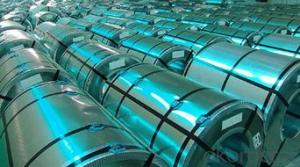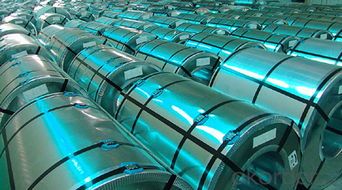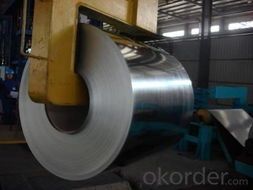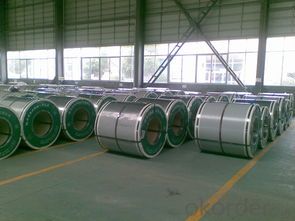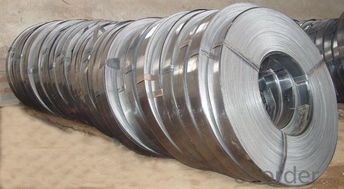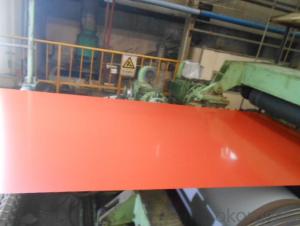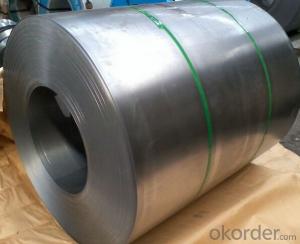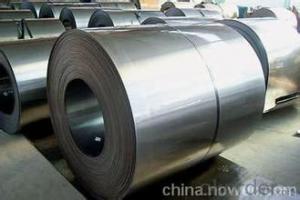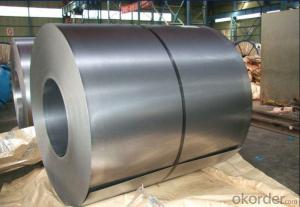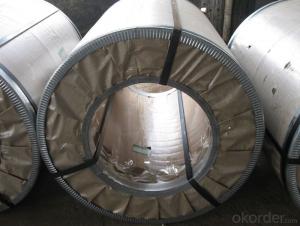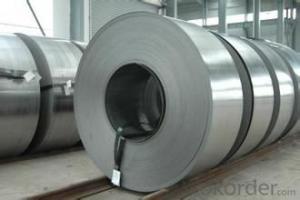Chines Best Cold Rolled Steel Coil With the Best Price
- Loading Port:
- China main port
- Payment Terms:
- TT OR LC
- Min Order Qty:
- 50 m.t.
- Supply Capability:
- 10000 m.t./month
OKorder Service Pledge
OKorder Financial Service
You Might Also Like
Chines Best Cold Rolled Steel Coil With the Best Price
1.Structure of Cold Rolled Steel Description:
The raw material of cold rolled steel coil/sheet is high quality hot rolled product, and after pickling continuous rolling, degreasing, annealing,skin pass,slitting and cut to length line etc. Along with it many kinds of new technology and new process of global cold rolling production have been applied. Therefore the quality of the goods could be guaranteed. The product is widely used in outdoor and interior decoration, furnishing manufacturing, home appliance, automobile etc.
2.Main Features of the Cold Rolled Steel:
• Excellent process capability
• Smooth and flat surface
• Workability, durability
• Excellent heat resistance performance
• High strength
• Good formability
• Good visual effect
3.Cold Rolled Steel Images
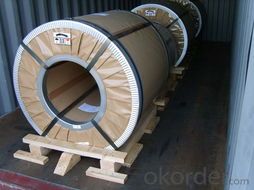
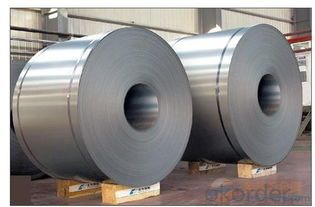
4.Cold Rolled Steel Specification
Standard:AISI,ASTM,DIN,GB,JIS,JIS G3302 ASTM 653M EN10142
Grade: Q195~Q345
Thickness: 0.16mm~2.0mm
Width: 1250mm MAX
Coil weight:3-12 MT
Coil ID:508/610mm
Chemical composition:
C | Si | Mn | Cr | Ni | P | S |
0.150 | 0.476 | 11.231 | 12.50 | 0.900 | 0.039 | 0.010
|
5.FAQ of Cold Rolled Steel
1.How to guarantee the quality of the products?
We have established the international advanced quality management system,every link from raw material to final product we have strict quality test;We resolutely put an end to unqualified products flowing into the market. At the same time, we will provide necessary follow-up service assurance.
2. How long can we receive the product after purchase?
Usually within thirty working days after receiving buyer’s advance payment or LC. We will arrange the factory manufacturing as soon as possible. The cargo readiness usually takes 15-25 days, but the shipment will depend on the vessel situation.
- Q: also what are the factors of location of these steel plants
- A lot of iron ore is available in the upper great lakes region. Iron ore needs to be transported on large freighters, and the Great lakes served a purpose for that transit system as well. I cant say much about Birmingham, but as for Detroit and Pittsburgh, the steel forming industry has been greatly affected by the low cost Asian imports now available. I think what happened was this: The US used to subsidize the US steel industry, this kept prices artificially high ( compared to the world market ), but also kept the plants open. Sometime during the present Bush administration, the US stopped subsidizing the steel industry, and the Asian steel manufacturers started dumping steel here in the US at very low prices, this caused the US company's to stop or greatly lower their production, and many US steel plants went out of business. Now with the US steel companies out of the way, the Asian steel companies have steadily raised their prices on the US steel buyer. Hows that for fair trade, the steel industry isn't the only thing this has happened to either. I know this was a bit of a rant, but I wanted to point out how a once proud steel industry was put to death by politics.
- Q: What is steel made of? What are the elements other than iron?
- iron (Fe) and carbon (C). Carbon is in small proportion, from 0.1% to 1.7% or so. If you go over 1.7% carbon by weight you get cast iron, which is much less hard than steel.
- Q: What are the common coil thickness and width combinations available for steel coils?
- The common coil thickness and width combinations available for steel coils vary based on industry standards and specific requirements. However, some commonly available combinations include coil thicknesses ranging from 0.5mm to 3mm and coil widths ranging from 600mm to 1500mm. Ultimately, the specific thickness and width combination for steel coils will depend on the intended application and manufacturing capabilities.
- Q: What are the uses of galvanized steel coils?
- Galvanized steel coils are widely used in various industries for their durability and corrosion resistance. They are commonly used in construction for roofing, siding, and structural components. They are also used in the automotive industry for manufacturing parts such as body panels, chassis, and exhaust systems. Additionally, galvanized steel coils find applications in the manufacturing of appliances, agricultural equipment, and electrical enclosures.
- Q: Is there any noticable or perceived difference between smoking out of a pipe with a brass screen and a stainless steel screen?
- I have been searching the internet, trying to find out the difference, myself... I know what I have heard from others; that the stainless steel is more rigid, and harder to mold to the bowl. I've heard that brass is softer, and previously thought it was healthier, but someone recently told me the opposite to what I'd heard. The one thing I do know for sure is that you're supposed to heat both sides of either with a lighter to oxidize anything that doesn't need to be there... If you do find the answer, I'd love to hear it... Cheers!
- Q: (I'm not sure if steel is in fact a mineral)But I want to know if .. Last say topaz is stronger/harder then steel
- Mineral ≠ metal Strong ≠ hard Even after you learn what the words mean, the only straight answer is still Look and see.
- Q: How are defects in steel coils repaired?
- Defects in steel coils can be repaired through several methods depending on the type and extent of the defect. One common approach is known as welding repair, which involves using specialized welding techniques to fix the defect. This method is typically used for minor defects such as cracks or small holes in the coil. The damaged area is cleaned, prepped, and then welded using appropriate welding rods or wires to ensure a strong and durable repair. For more severe defects, such as large holes or significant damage to the coil, a patching technique may be employed. This involves cutting out the damaged section and replacing it with a new piece of steel. The patch is usually welded to the intact areas of the coil, ensuring a secure and seamless repair. In some cases, defects can also be addressed through grinding or sanding techniques. This is often used for surface defects like scratches or blemishes that do not compromise the structural integrity of the coil. Grinding or sanding the affected area smooths out the defect, improving the appearance and preventing further damage. It is worth noting that the repair method chosen depends on factors such as the specific defect, the material of the coil, and the intended application of the steel. The repair process may also involve additional steps such as heat treatment or surface finishing to restore the coil to its original condition. Overall, repairing defects in steel coils requires the expertise of skilled technicians and specialized equipment. It is crucial to address these defects promptly to prevent further damage and ensure the coil's performance and longevity.
- Q: What is the average thickness tolerance for steel coils?
- The average thickness tolerance for steel coils can vary depending on the specific industry and application. However, a common average thickness tolerance for steel coils is typically around ±0.005 to ±0.010 inches.
- Q: How are steel coils used in the manufacturing of solar panels?
- Steel coils are used in the manufacturing of solar panels primarily for the structural support and durability they provide. These coils are often used to construct the frames and mounting systems that hold the solar panels in place. The strength of steel ensures that the panels remain stable and secure, even in harsh weather conditions. Additionally, steel coils can be shaped and formed to meet the specific design requirements of solar panel installations, making them a crucial component in the manufacturing process.
Send your message to us
Chines Best Cold Rolled Steel Coil With the Best Price
- Loading Port:
- China main port
- Payment Terms:
- TT OR LC
- Min Order Qty:
- 50 m.t.
- Supply Capability:
- 10000 m.t./month
OKorder Service Pledge
OKorder Financial Service
Similar products
Hot products
Hot Searches
Related keywords
